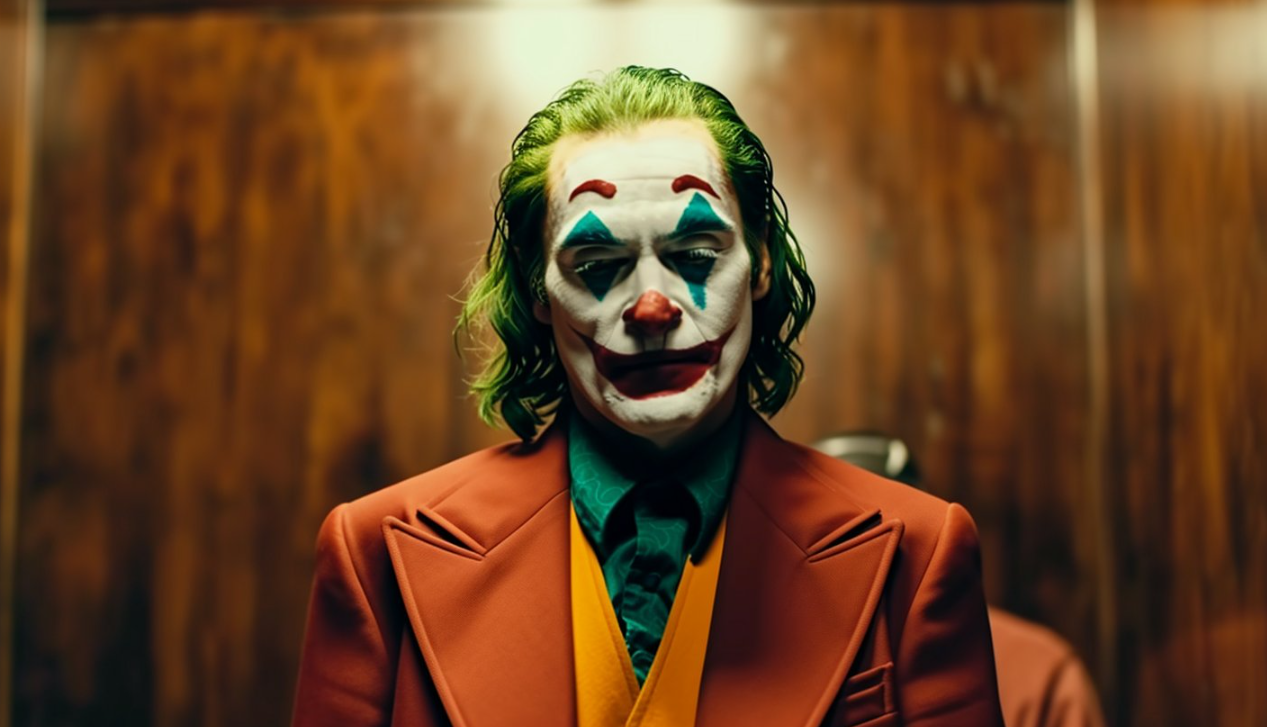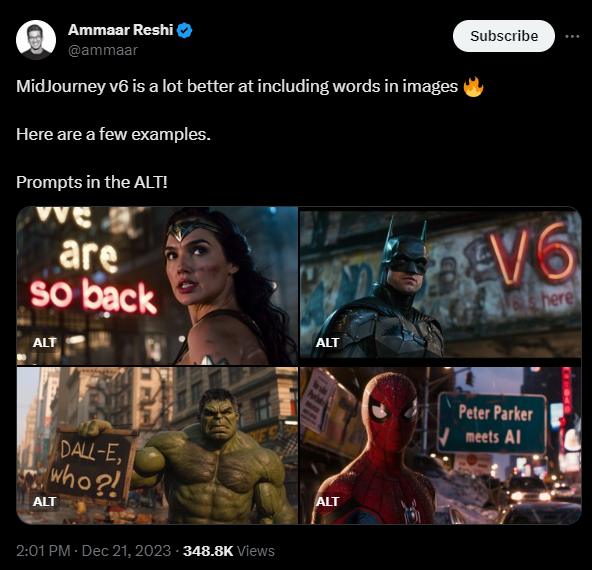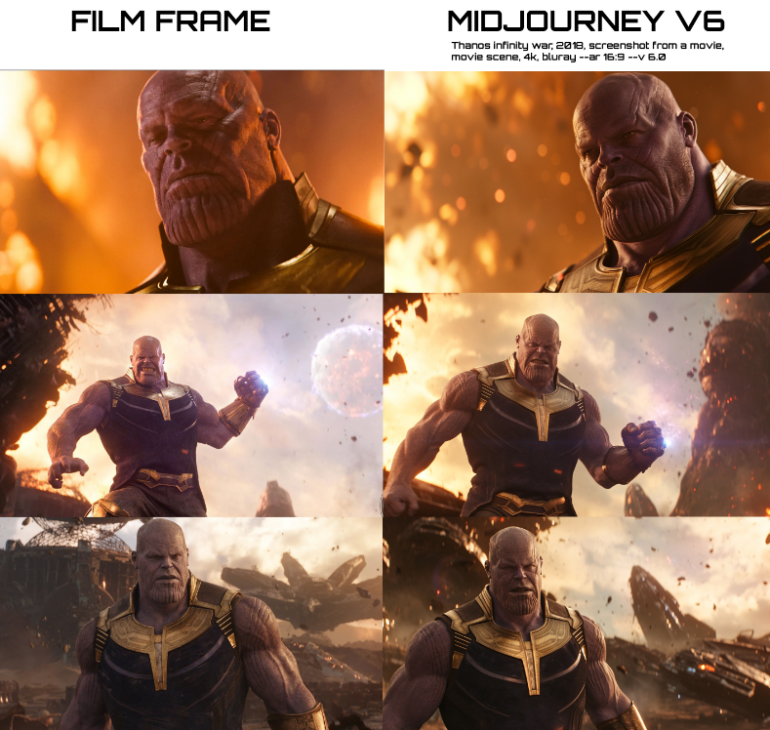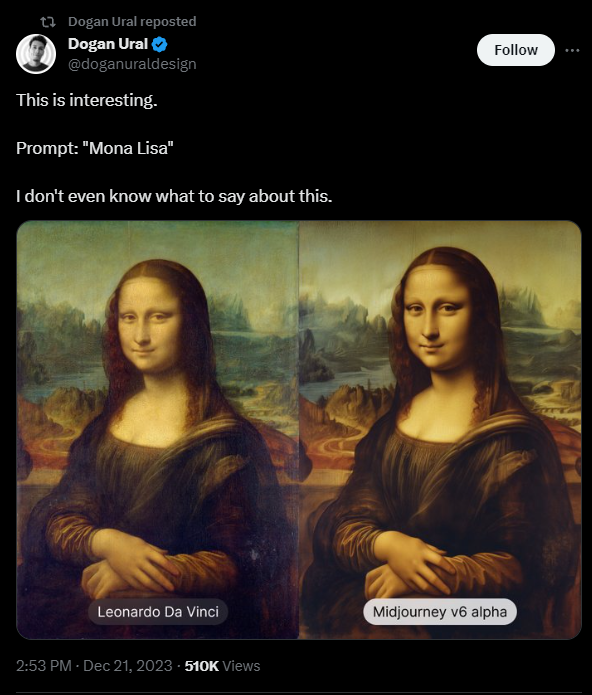Midjourney will "find you and collect that money" if you infringe any IP with v6

Update –
- Added information about Midjourney ToS changes
Update December 26, 2023:
After the complaints about possible copyright infringements described below, Midjourney has updated its Terms of Service with a new passage that shifts the responsibility for potentially copyright-infringing images generated with Midjourney to the generating user.
The clarity with which Midjourney expresses itself here is striking - the company wants to make it unmistakably clear that its service should not be misused for copyright infringements, even if this is technically easy to do.
If You knowingly infringe someone else’s intellectual property, and that costs us money, we’re going to come find You and collect that money from You. We might also do other stuff, like try to get a court to make You pay our legal fees. Don’t do it.
Midjourney Terms of Use
This case is interesting on many levels and is likely to keep the courts busy. On the one hand, the Midjourney team will likely argue that the image generator can be considered a mere tool, a blank canvas that the user fills with content based on prompts. As with Photoshop, the user can create legitimate or illegitimate content. No one wants to ban or regulate Photoshop for this reason.
On the other hand, it is easy to create such images with Midjourney v6, and the model can only do this because it was trained with images that Midjourney has not licensed.
In addition, there may be cases where users violate copyrights but do not realize it because they are not known subjects, for example in the area of stock photography - Midjourney refers only to intentional copyright violations. However, the likelihood of "overfitting" is lower in this scenario (see below).
For Midjourney, much will depend on whether courts deem the unauthorized use of data for AI training to be "transformative use" and thus "fair use."
Original article from December 23, 2023:
Midjourney's v6 model draws close to copyright infringement with movie scene images
The alpha test of the new version v6 of Midjourney shows that the popular image AI can generate images that are very close to copyrighted original images and unmistakably reproduce well-known brands or people.
Midjourney users share examples of this on X. The most striking is that of Joaquin Phoenix in the 2019 Joker movie. The prompt "Joaquin Phoenix Joker movie, 2019, screens from movie, movie scene" returns an image that almost exactly matches a movie scene.

The difference is mainly in the lighting and colors. The images are so similar that it seems possible that this is a slightly modified version of the training data (image 1: Midjourney, image 2: original movie scene).
Video: via Reid Southen, X
The new model may have been trained repeatedly and intensively on the same data to maximize performance, resulting in outputs that are almost identical to the training data. This is called "overtraining" or "overfitting," and studies have indicated that it can happen. ChatGPT can also show signs of text overfitting.
There are several examples of this on X. The scene is not always actually from a movie - but it could be, as the following generated images with characters from superhero movies show.

Again, some generated images are very close to the film originals, differing only in minor variations such as camera angle or posture.

The prompts for these images are easy to write, all you need is the name of the movie, maybe the year, and a tag like "movie scene" or "screenshot from a movie". I was able to generate these images with Gandalf from "Lord of the Rings" using the same scheme. Images two and four look close to the original Gandalf.

Midjourney faces plagiarism accusations
Illustrator and film concept artist Reid Southen, who has worked for Marvel Productions, criticizes Midjourney on X. He reports that images have been deleted from his account because of his comments. According to Southen, his account was banned, and he was kicked out of the Midjourney Discord group. He made a video showing his plagiarism experiments with Midjourney v6.
Video: Reid Southen via X
Southen accuses Midjourney of "illegally using copyrighted IP without a license." The AI software can create "exact copies of copyrighted IP, as well as infinite derivatives," according to Southen.
Artists would be competing with their own work in the same market. "Or what about brand image issues and consumer confusion when 50% of all Marvel stuff online ends up AI knockoffs?" writes Southen.
Simple prompts that lead to plagiarism also exist for classic artworks like the Mona Lisa. In this case, the plagiarism would not be legally problematic because the image is in public domain due to its age.

For critics of AI systems who accuse model makers of data theft and misuse, the new v6 model is likely to be a bombshell. Numerous lawsuits are pending, and Midjourney is already involved in at least one.
Tech companies argue for "fair use" because training computer systems with data and letting them learn from it is supposedly a "transformative" use of data. But the examples above may convince courts otherwise. Midjourney has not yet responded to this criticism.
AI News Without the Hype – Curated by Humans
As a THE DECODER subscriber, you get ad-free reading, our weekly AI newsletter, the exclusive "AI Radar" Frontier Report 6× per year, access to comments, and our complete archive.
Subscribe nowAI news without the hype
Curated by humans.
- Over 20 percent launch discount.
- Read without distractions – no Google ads.
- Access to comments and community discussions.
- Weekly AI newsletter.
- 6 times a year: “AI Radar” – deep dives on key AI topics.
- Up to 25 % off on KI Pro online events.
- Access to our full ten-year archive.
- Get the latest AI news from The Decoder.